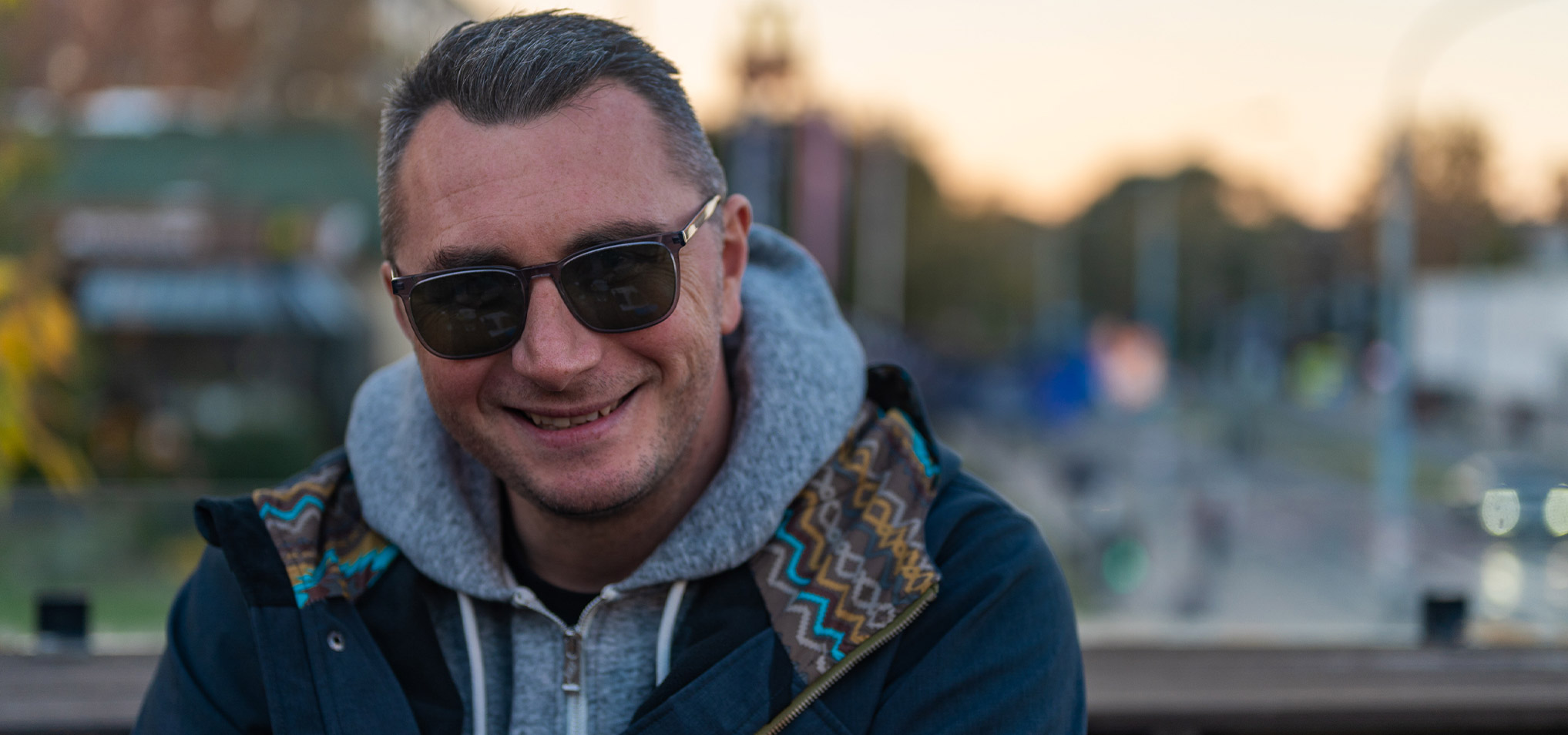Mile Ilic: The tallest podcaster in the Balkans
During his two-decade-long career, he played basketball on three continents and competed against some of the biggest names in the world at the center position. He once defended the colors of our national senior team, and today, he is the tallest host of his popular podcast, "Jao Mile." In an interview with 011info, Mile Ilić recalls how, under bleak circumstances, he ended up in Belgrade with his family, and how, while moving around, he got to know the city. He also confides why he didn't leave a deeper mark in the NBA and reveals who he would never invite to his "Jao Mile" podcast.
How was your first encounter with Belgrade?
Although we came to Belgrade due to unfortunate circumstances, specifically because of the outbreak of war in Bosnia and Herzegovina, I accepted the information quite calmly. I was only seven years old and, to be honest, I didn’t even know what Belgrade was or where it was located. For some reason, I clearly remember the bus dropping us off at Slavija, which, due to all the commotion, looked to me like Times Square in New York.
Looking back now, it was actually a huge change—I traded a small town for a metropolis. In my hometown, I knew everyone by name, and I would greet them when I saw them. My upbringing didn’t change when we moved to the capital, so I did the same for the first few days in Belgrade. I can’t forget the bewildered faces of the passersby, who obviously couldn’t believe this kid was greeting everyone. They probably thought I wasn’t all there, but these were the values we nurtured in the village, which are slowly disappearing in our society, along with respect and a sense of shame.
Anyway, once I got to know the city a little better, I used to ride public transportation from the first to the last stop, and back again. That was my main entertainment, because, after all, we’re talking about the gloomy 1990s.
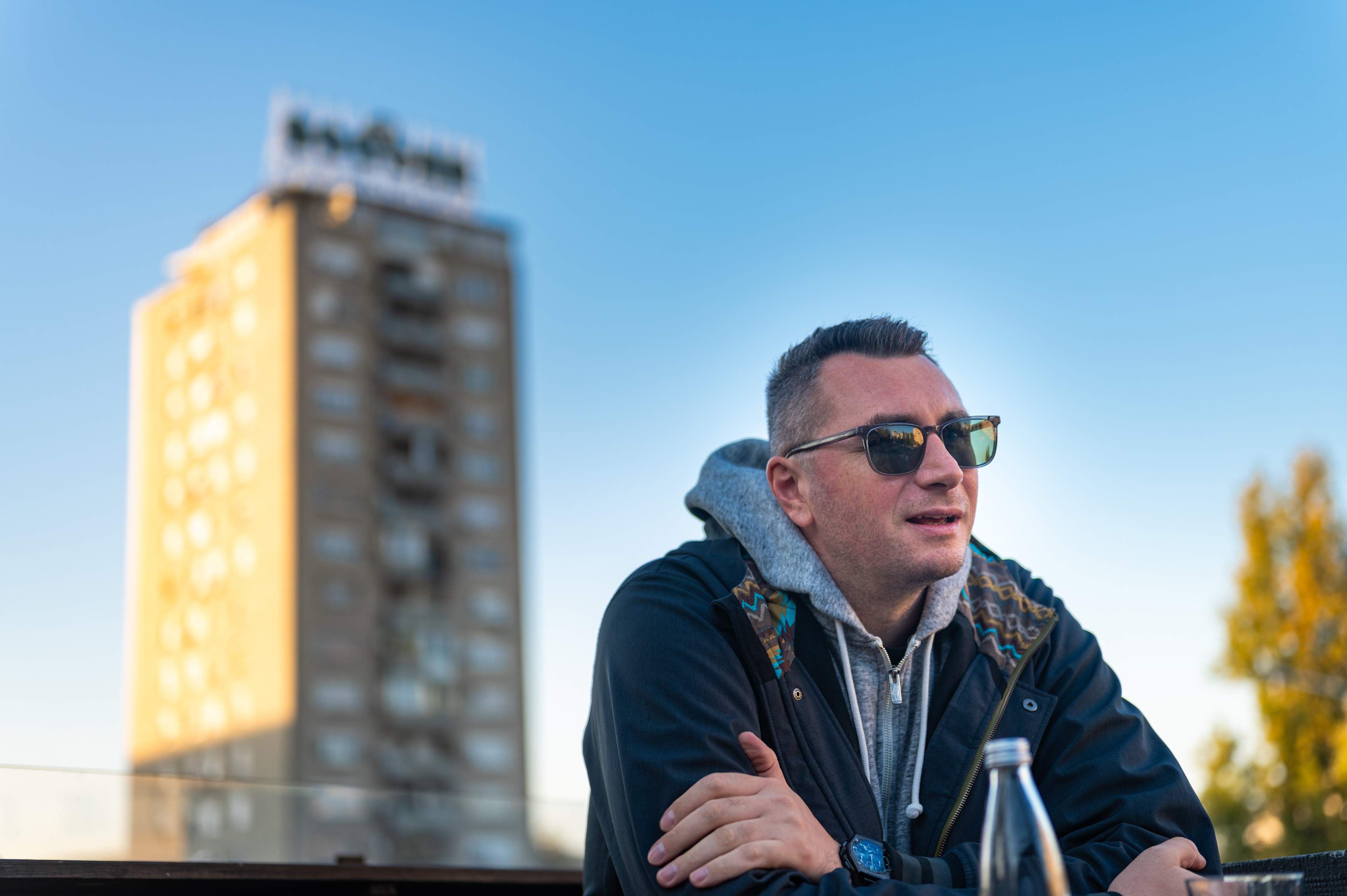
Where did you settle?
The answer to that question isn’t simple or short. Since my older sister was playing basketball for Partizan at the time, we lived as tenants. However, since the club didn’t regularly cover the rent, we moved 13 times in less than four years, if I haven’t lost count.
So, we traveled all over Belgrade: from Palilula, through Konjarnik and Dušanovac, to Miljakovac. I’m sure I missed some locations, but there were too many to keep track of.
You mentioned that your sister was a successful basketball player. She introduced you to the sport, didn’t she?
Exactly. Back then, it was normal to follow the family path. If the father was a doctor, the child would often become one, too. So, I started to take an interest in basketball because of her influence, but also because of my height.
At first, it felt strange at practices, but as time passed, it became more and more interesting. Watching the older players, you want to shoot a three-pointer, make a behind-the-back pass, or dunk.
When did you dunk for the first time?
Quite late, considering my height, but the reason was simple—I wasn’t very explosive. Eventually, I dunked for the first time in the seventh or eighth grade, standing 197 cm tall at the time. After that, I grew rapidly, reaching 215 cm, which was a painful process.
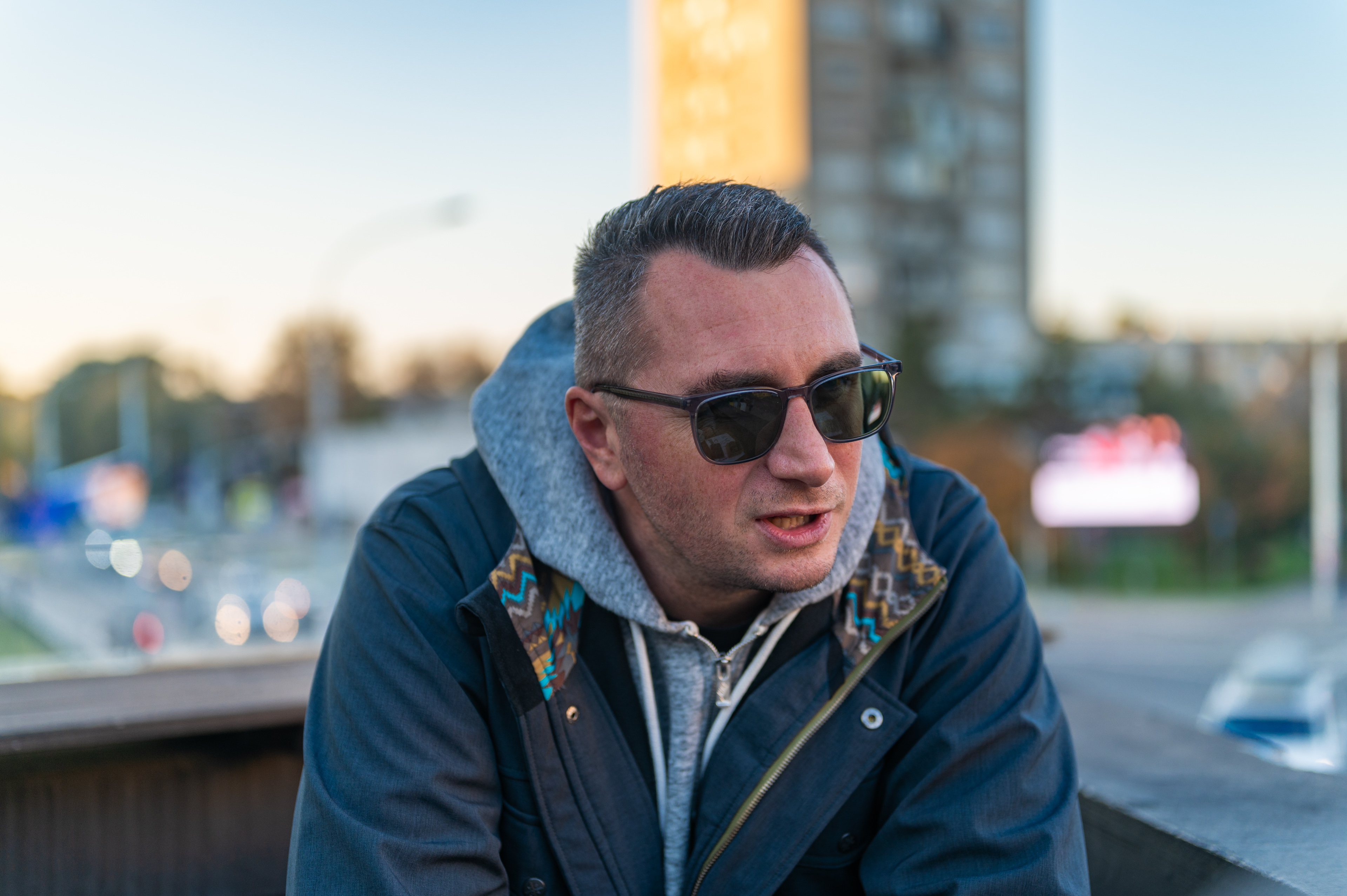
Who did you learn the most from during that time?
I learned a lot from coaches, but I think I learned the most from my teammates. The coach shows you the basics, but it’s up to you to improve them. Sometimes you see an opponent do something, and you try to incorporate that into your game.
Did you have any basketball idols growing up?
Divac was by far number one for me, especially his style of play and sense for assists. Later on, it was Hakeem Olajuwon and Željko Rebrača, players you admire and try to emulate, even just a fraction of what they achieved. Unfortunately, I never had the chance to play against Divac, but I did compete with Rebrača during the national team’s preparations for the 2005 European Championship, which ended in disaster for us as hosts.
You started your basketball journey in Partizan, but you made your name in FMP, where you beat that same Partizan in the finals.
Look, that was a period of basketball development when you’re eager to compete and prove yourself, and you do that against the best. At that moment, Partizan was the champion, dominant in the league, and a EuroLeague team filled with big names and young players who went on to have great careers.
But that didn’t stop us from defeating them in the 2005 Radivoje Korać Cup final in Vršac and the 2006 Adriatic League final in Sarajevo. To be clear, we won those two trophies thanks to the cup system, playing one decisive game. Had it been a series, we wouldn’t have had much of a chance.
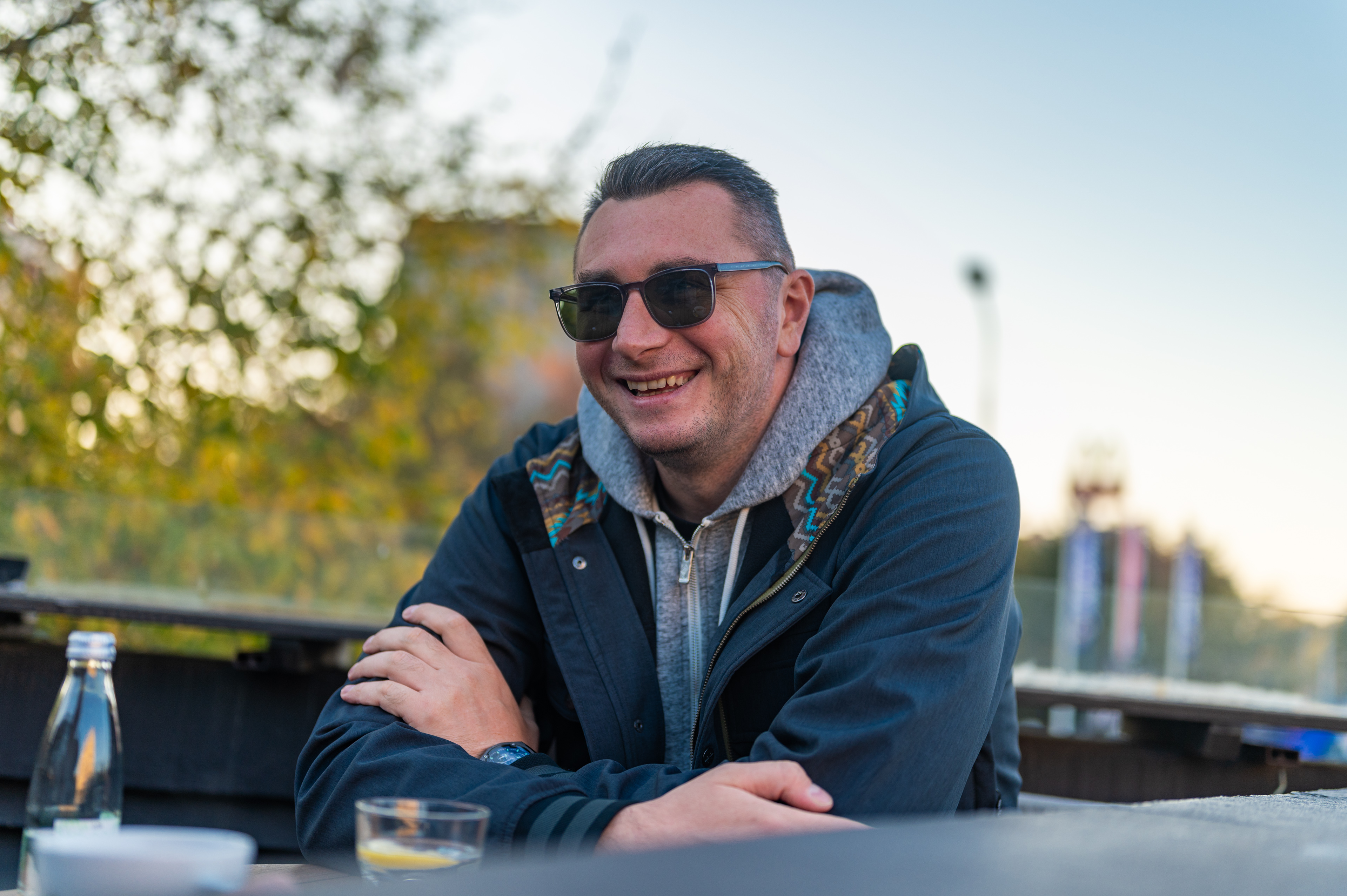
When did you start dreaming of the NBA?
I think from the moment I started playing basketball, I began dreaming of the NBA. I believe it’s that kind of dreaming that drives you through your career toward certain goals that seem out of reach at the time.
I fulfilled that dream in 2006 when I played for the New Jersey Nets. Although I didn’t make much of an impact, I had the privilege of being among the 6,000 players who, in 75 years of NBA history, managed to make it there, a fact that I’m particularly proud of.
Of course, there are things I regret to some extent. First, not managing to win the Serbian championship when the competition was fierce, and never playing in the EuroLeague. There were opportunities, but it just never happened.
What do you think was the reason for your short stint in the NBA?
I was simply too young, barely 22, and I wasn’t ready either physically or mentally. On top of that, I suffered a serious ankle injury during training camp, which significantly impacted my career. Even after a long rehabilitation, there was always doubt among teams when they considered signing me.
So, there were no behind-the-scenes issues, nor do such things exist in the NBA. It’s a very well-organized system with clear rules that are strictly followed. Yes, a coach might not favor you, but if you have talent, you will get your chance eventually.
Did you plan what you would do after your sports career, and how important is it to think about this during your playing days?
Actually, I had some plans, but they fell through, and in the meantime, the podcast emerged as an opportunity that I seized. Yes, it’s a crucial question and one of the mandatory ones I ask my guests. Through these conversations, I noticed that many former colleagues weren’t prepared for life after their careers, and some even ended up in serious trouble.
I completely understand them in this regard. When you end your basketball career, you lose your identity. You no longer have professional obligations; coaches aren’t calling you, journalists aren’t contacting you, and so on. That’s why I use the podcast to tackle this issue and try to raise awareness among basketball players to start planning in advance what they will do after their careers. It doesn’t necessarily have to be opening a café or restaurant or investing in real estate. To be honest, our education system also bears some blame because we are financially illiterate.
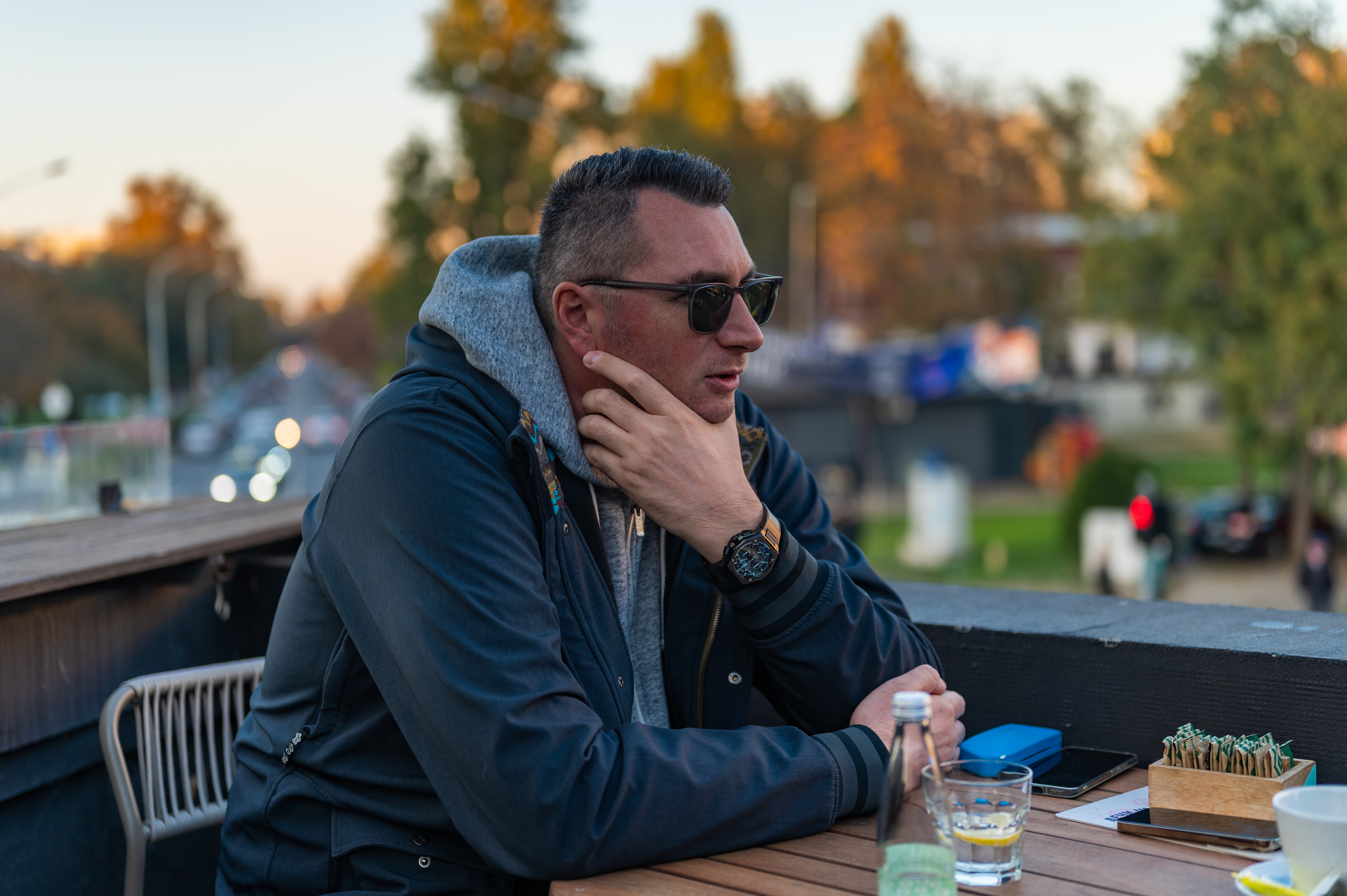
Jao Mile is now a serious media outlet.
Exactly, but I didn’t perceive it that way at first. My goal was for us to sit down and chat, allowing the audience to hear some interesting details from the guest’s career. In plain terms, we wanted to open up and share the challenges we faced. Of course, there are plenty of great moments during a career, but if we’re being realistic, it’s hard to believe the sheer number of things a basketball player goes through in just one season, let alone an entire career.
To go back to your point—yes, Jao Mile has become serious media, and it’s a great privilege to have hosted it for two and a half years on the air.
How did you become the most popular basketball podcast in such a short time?
It’s thanks to the guests and their friendly approach with me. Today, you can open an app and immediately see how many points someone scored or rebounds they grabbed, but only a small circle of people knows the behind-the-scenes details—what happens during practice or on the way to the locker room. My guests are willing to share those stories with the viewers and listeners.
Another significant advantage is that I personally know many of them. I’ve played with them, shared hotel rooms, locker rooms, and even showers, so there are essentially no secrets between us. Jao Mile is primarily a casual, friendly, and relaxed conversation where guests come to share what’s on their minds. That’s something you can’t achieve with a trained journalist, who is usually focused on extracting a story rather than building long-term trust. Maybe that’s one reason why there are no interviews with players like Jokić, Teodosić, Bjelica, and others.
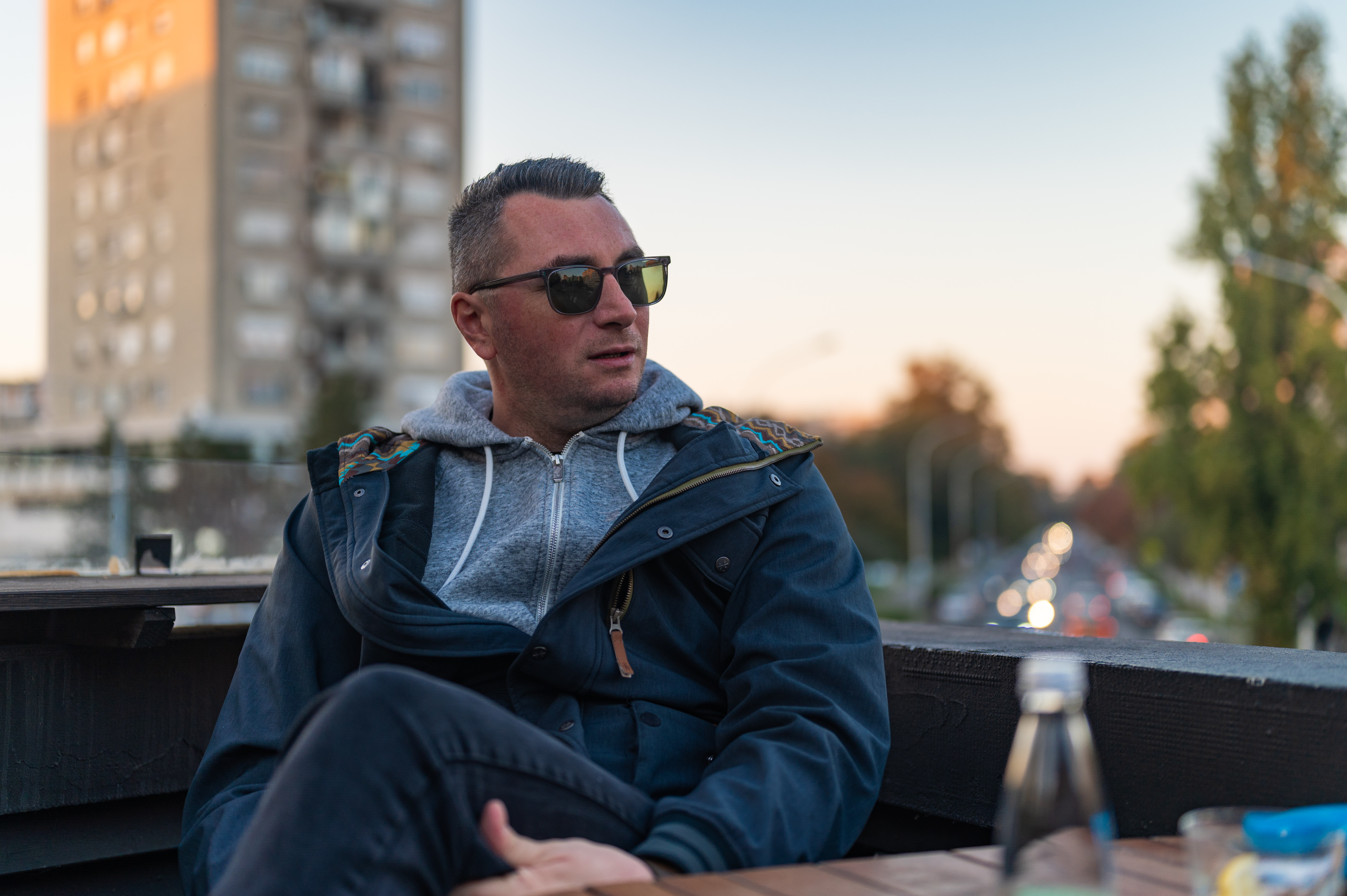
Many guests have appeared on your podcast. Could you highlight any particular episodes?
When it comes to special episodes, I judge them by how much we genuinely laughed during filming. By that measure, Branko Sinđelić’s appearance stands out—he shared a ton of great anecdotes, and we were “dying” of laughter. Then there’s the episode with Nikola Otašević, which still dominates in terms of views, and the one with Darko Miličić.
How much time do you need to prepare for a podcast?
It depends on the guest. If it’s someone I know well or was a long-time teammate, then half an hour is enough—just enough to get ready for filming. Of course, there are guests who require serious preparation, which can take several hours of “burning the midnight oil.”
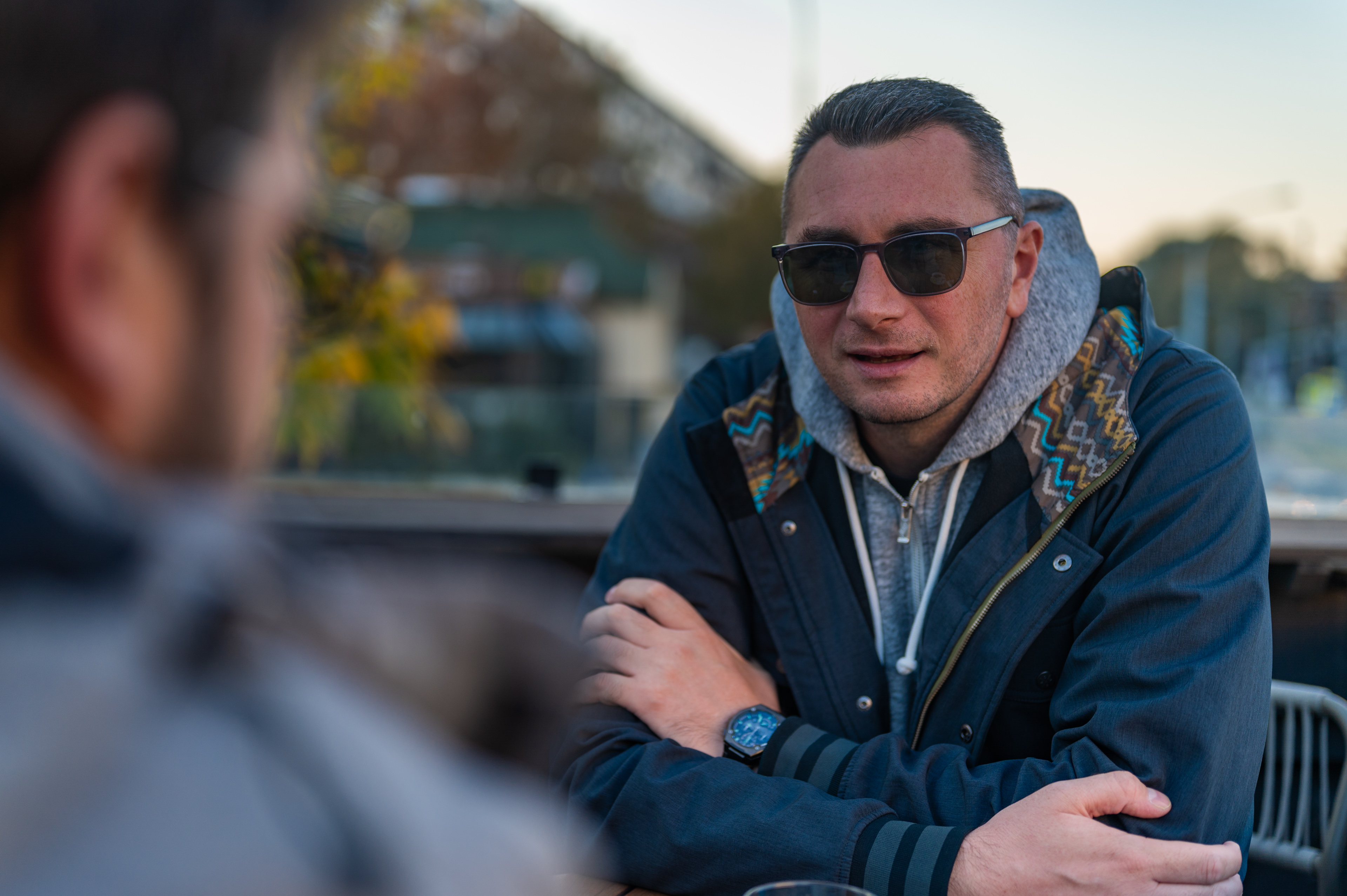
Do you plan to invite more international or non-basketball guests?
Absolutely. Recently, we released an interview with David Andersen, the most decorated Australian basketball player of all time, and with Luc Longley, a three-time NBA champion with the Chicago Bulls and Michael Jordan. We have plans for more high-profile guests, but nothing is finalized yet.
As for non-basketball figures, we recently hosted Nikola Rađen, our celebrated water polo player. Last year, Andrija Gerić, an Olympic champion with the volleyball team and now a sports psychologist, joined us. So, if there are interesting figures from other sports, I’ll gladly invite them to the Jao Mile podcast. Until then, my focus is on basketball. I’ll just say that my sister will never appear in our studio because it’s impossible to prepare for that conversation.
Jokes aside, what really flatters me is that we are listened to and watched beyond our country’s borders. In addition to neighboring countries from the former Yugoslavia, we are followed in Germany, Australia, and even “across the pond” in the USA.
How much basketball do you follow today?
I watch games whenever I have time, but if I miss one, it doesn’t bother me. I see people on social media getting really upset over wins and losses, but there’s no point in such religious devotion to following games when there are far more important things in life.
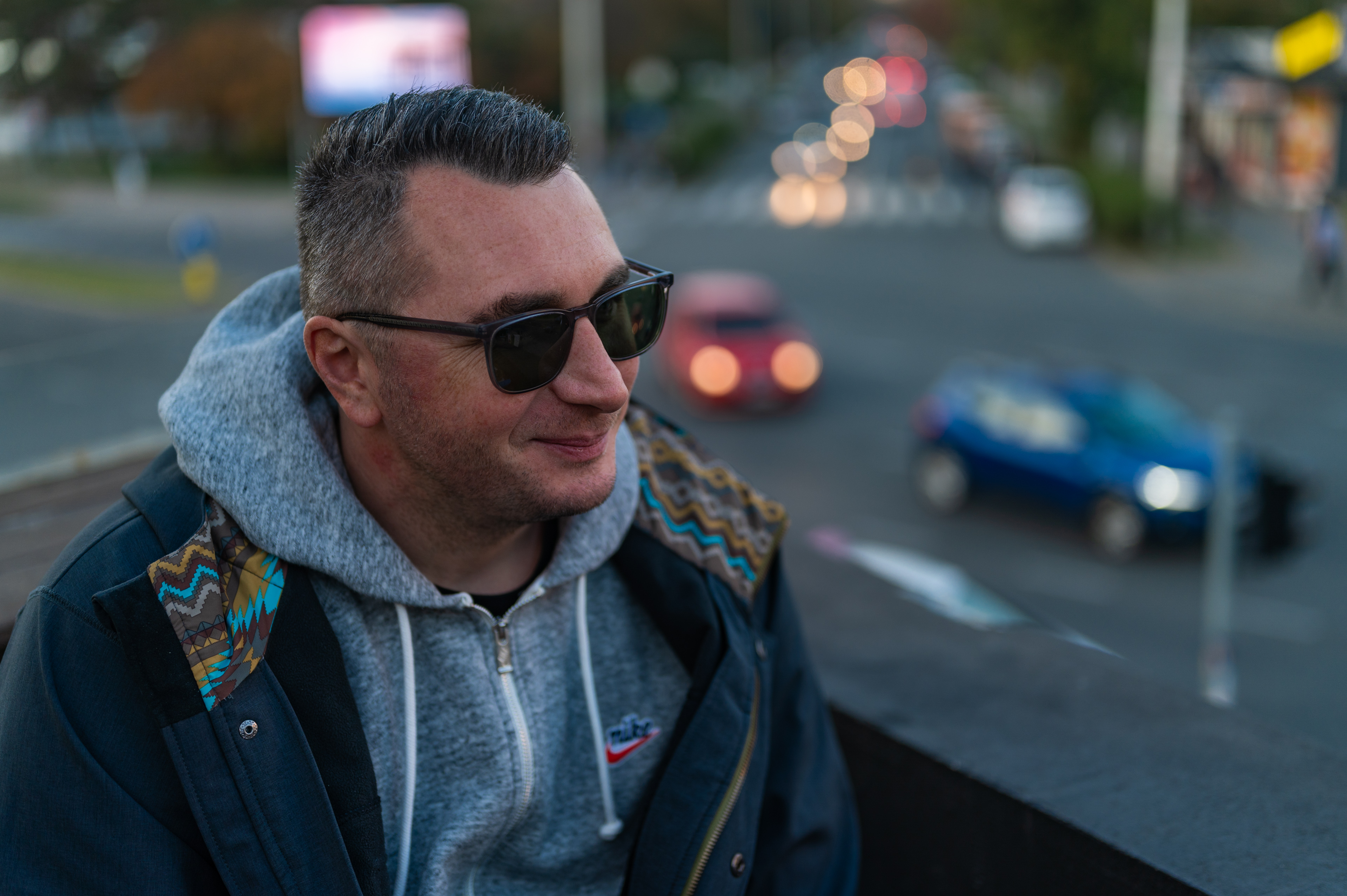
Do you still play basketball now that you’re “retired”?
Honestly, I haven’t touched a basketball since I hung up my “Jordans.” I simply don’t feel the urge to play. When I find some free time, I play padel with friends, which has become quite popular recently.
What would you say to young basketball players?
Dream, imagine, and strive toward your goals. As Novak Djokovic said: “Dream big.” If you don’t have a goal, something to aim for, you won’t achieve anything. If your dream is basketball and the NBA, do everything in your power to make it happen.
On your journey, never neglect your education, even though, truth be told, it’s not particularly supportive of athletes. Still, you need to find a balance between training and studying because, without a certain level of education, we, as human beings, are incomplete.
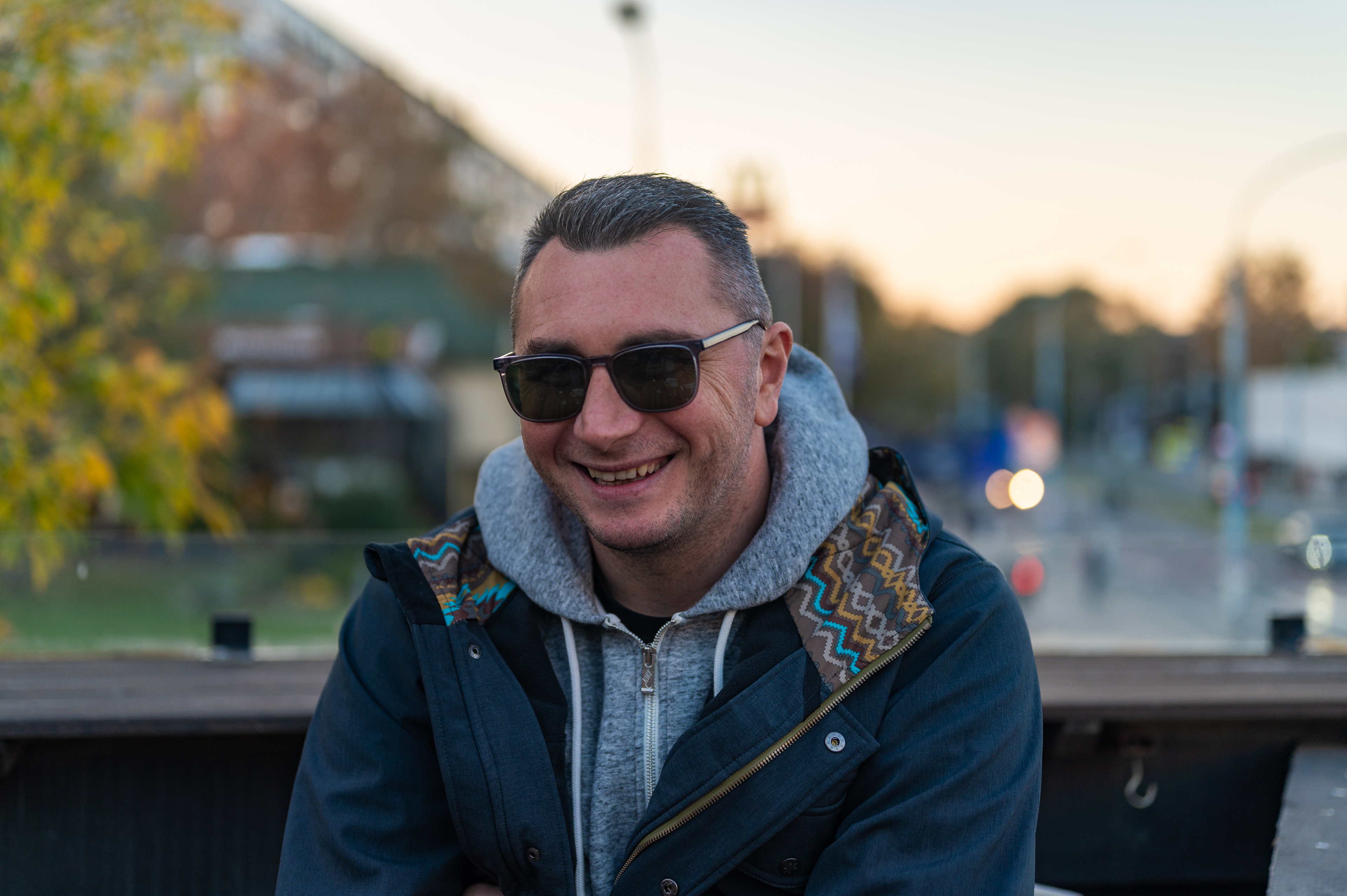
Where do you spend your free time?
Since I’m in podcasting, I have plenty of free time, but at the end of the day, it all depends on how I organize it. I mostly spend my free time with my family in New Belgrade and Banovo Brdo, trying to avoid the city center at all costs because the traffic has become unbearable.
Eventually, we’ll leave Belgrade and move somewhere quieter, but it’s still too early for that. At 40, I’m still full of energy, and as Nikola Tesla said, a person is made to work and create.
What are your plans going forward?
We’ll continue as we are—recording podcasts and airing them every Wednesday. We might eventually change the format, but nothing more than that.




 19 ℃
19 ℃

